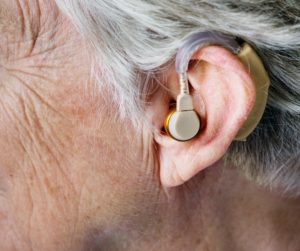
We all know how important it is for them to be able to hear as well as possible so they can function at their fullest potential, at school, work, and
in relationships.
We all instinctively know hearing impairment is not a benign condition. When a child or adolescent is diagnosed with even a mild hearing loss there are multiple programs that can help them get hearing aids – we value their hearing. We all know how important it is for them to be able to hear as well as possible so they can function at their fullest potential, at school, work, and
in relationships.
Yet for some reason, when adults have a hearing loss many people seem to think that it’s nothing to worry about. Most people seem to think that it’s okay to just live with the impairment. However, untreated hearing impairment can have serious consequences.
Hearing impairment contributes to:
- Social isolation
- Depression and anxiety
- Increased hospitalization
- A decline in physical functioning
- An increase in falls –
a mild loss = 3 times more likely to have a history of falling - Cognitive decline
- Early death
Hearing impairment does not primarily affect the elderly. The majority of people, 50% of women and 64% of men, start to perceive hearing impairment between the ages of 20 to 59 (20% of females and 17% of males are identified as having impairment before the age of 20). And 12% of adults between the ages of 21 – 84 have hearing difficulties even though they have normal pure tone test results. Because we associate hearing loss with old age most people put off dealing with hearing impairment thinking they aren’t “old” enough to have hearing aids. Imagine what would happen if people still thought this way about glasses. Most people think hearing aids just aren’t worth the costs. Hearing loss is usually ignored for years and by the time it is dealt with there are often irreversible complications such as treatment options are limited yet more costly, and outcomes are less satisfactory.
Hearing impairment is a disease state and not a benign condition. Early diagnosis and treatment of hearing impairment is an important part of limiting its effects upon our mental, emotional, and physical health as well as upon our work and relationships. We need to stop ignoring hearing impairment.
Article Provided by:
Nathan Willard, Hearing Aid Specialist, SoundScape Hearing Aids
541-414-8488
www.SoundScapeHearing.com
Search Retirement Connection Listings for Residential Care Facilities
Search Residential Care Facilities for Grants Pass
Search Residential Care Facilities for Klamath Falls
Search Residential Care Facilities for Medford
Search Residential Care Facilities for Roseburg
